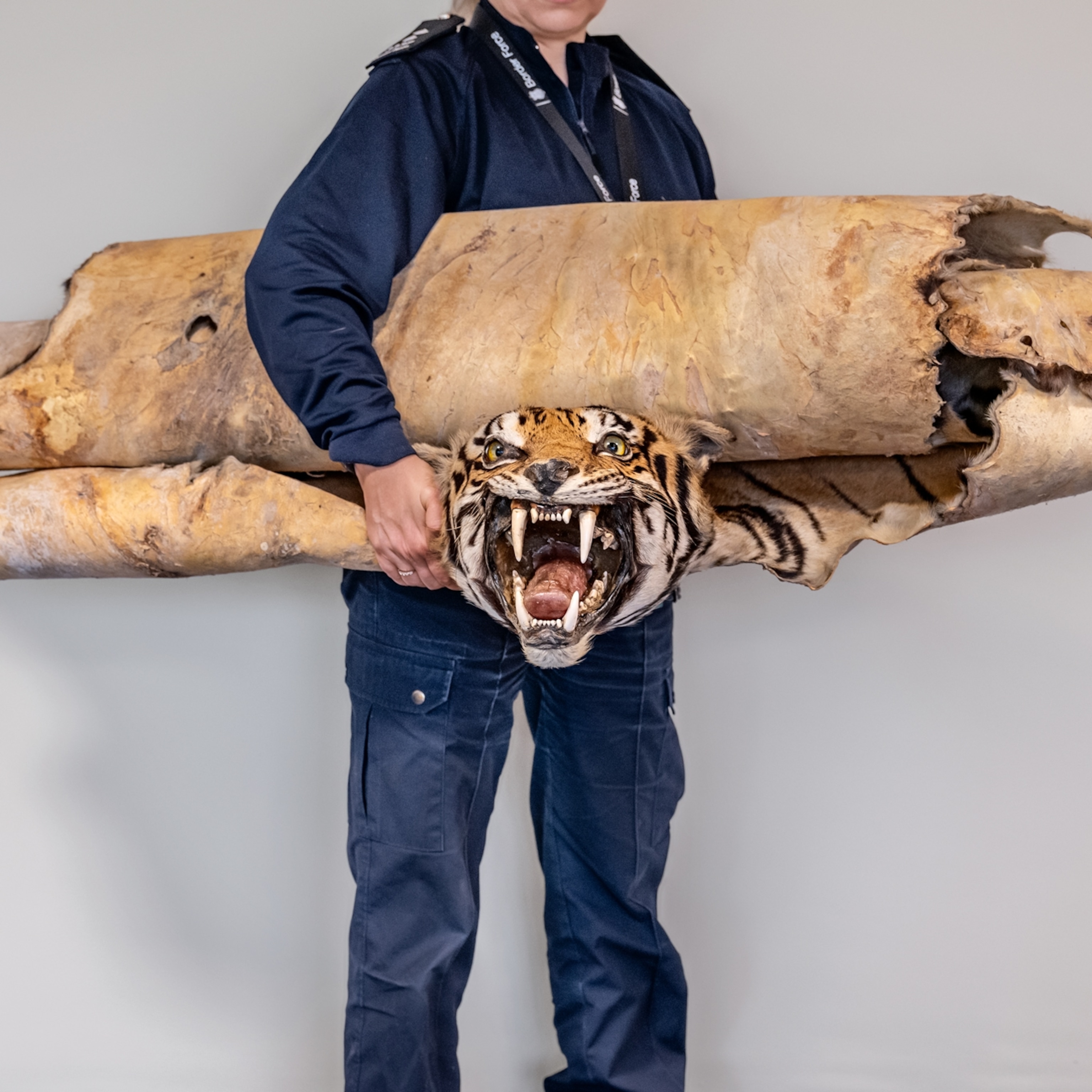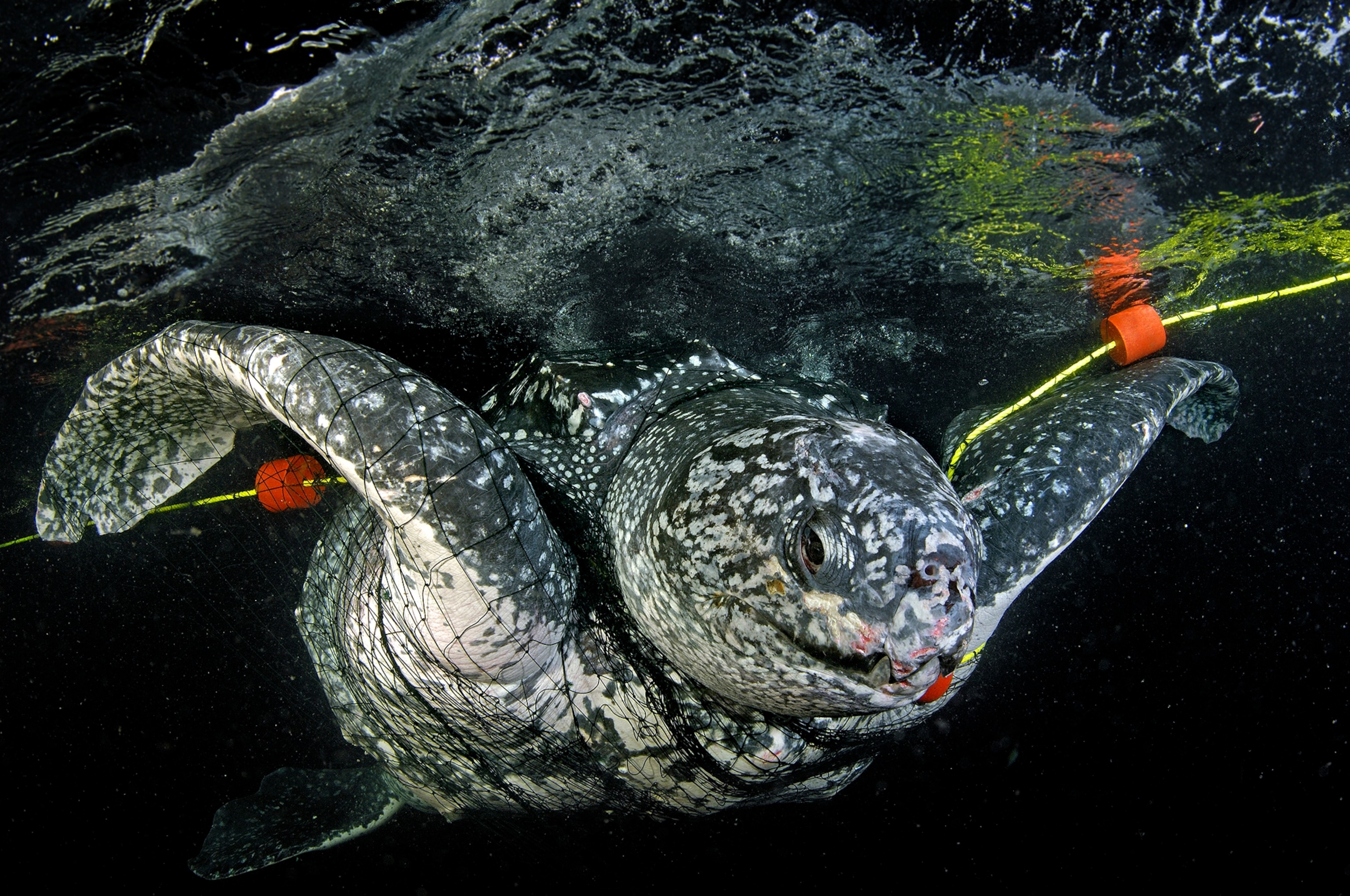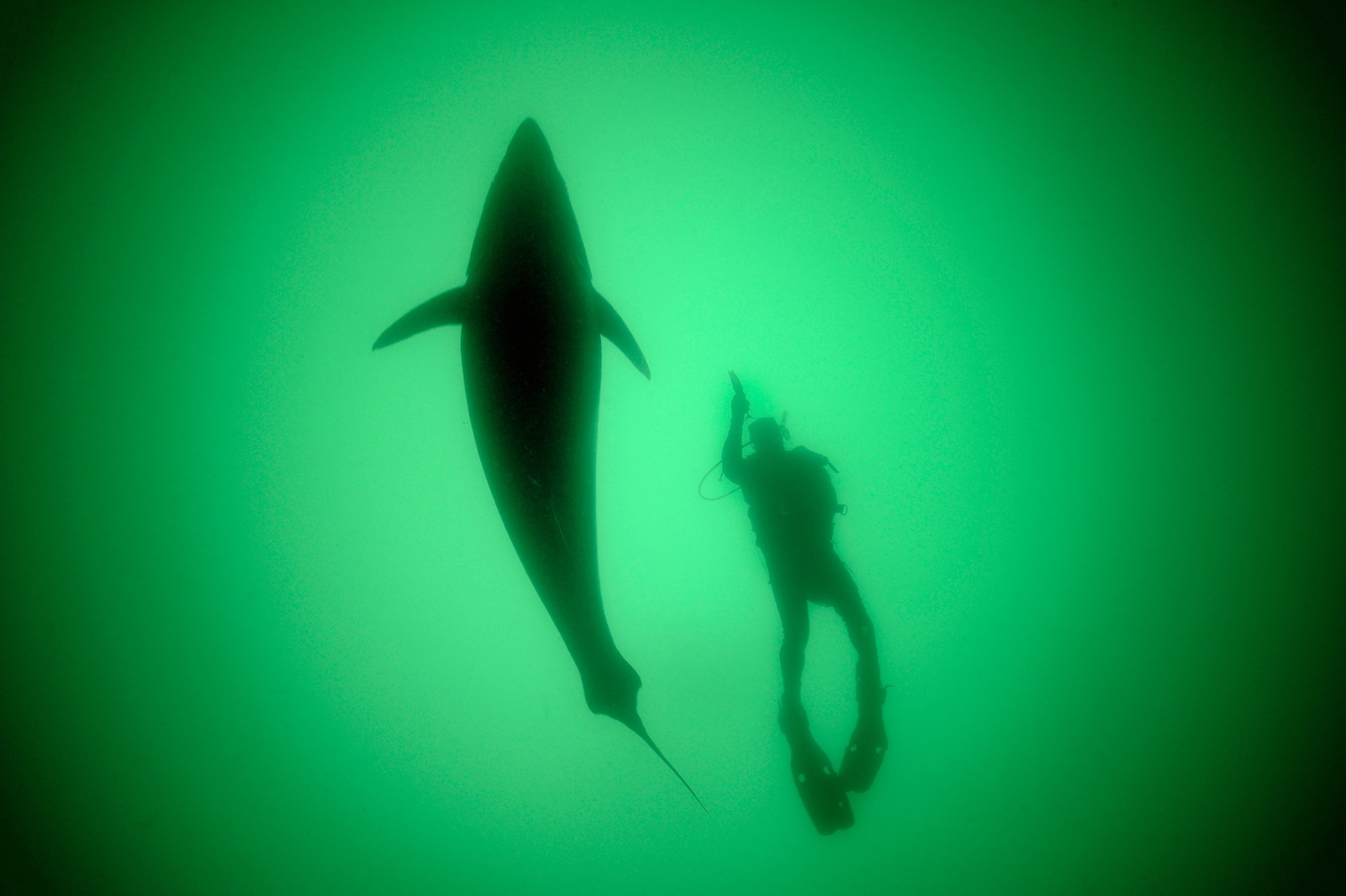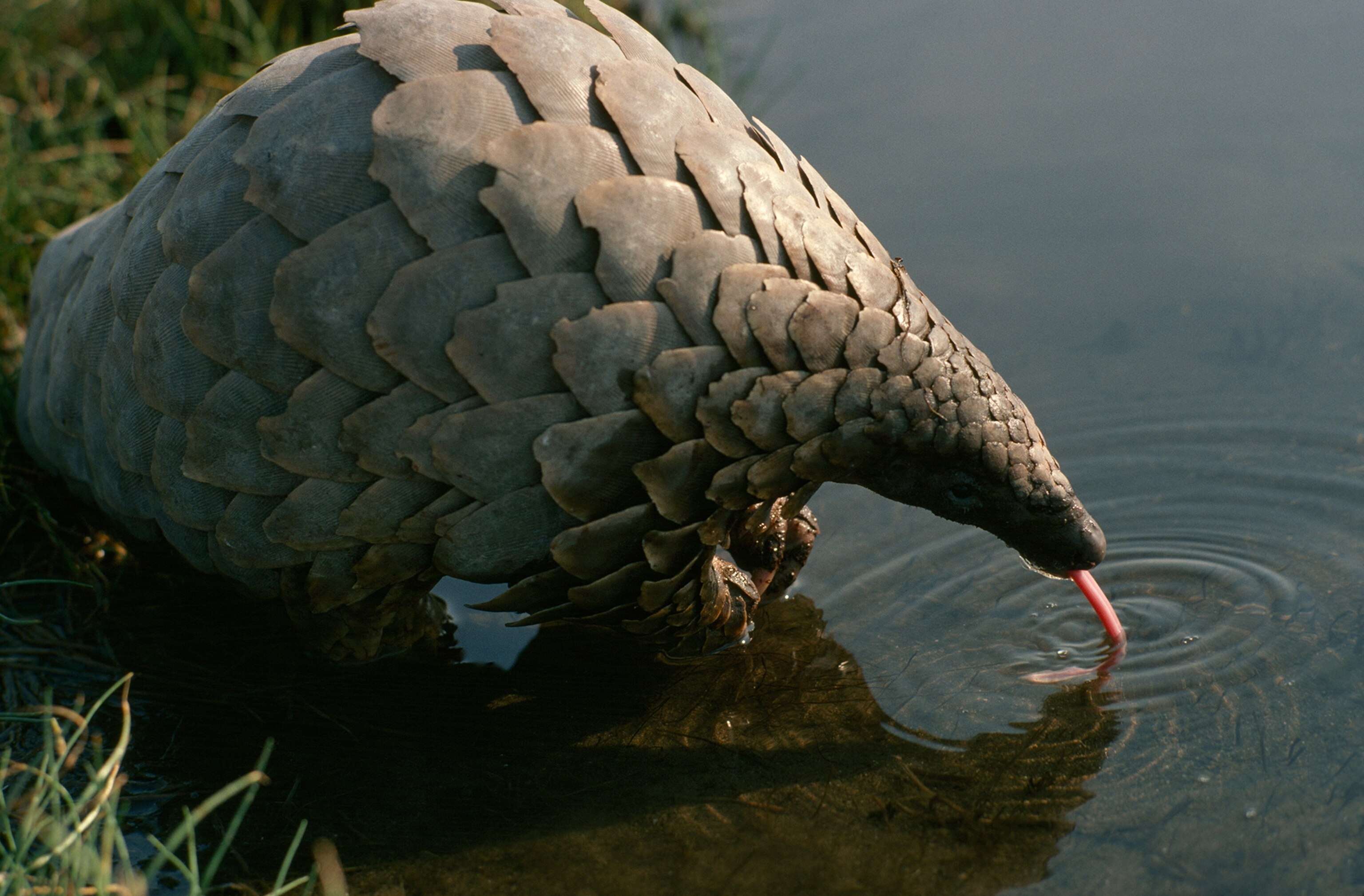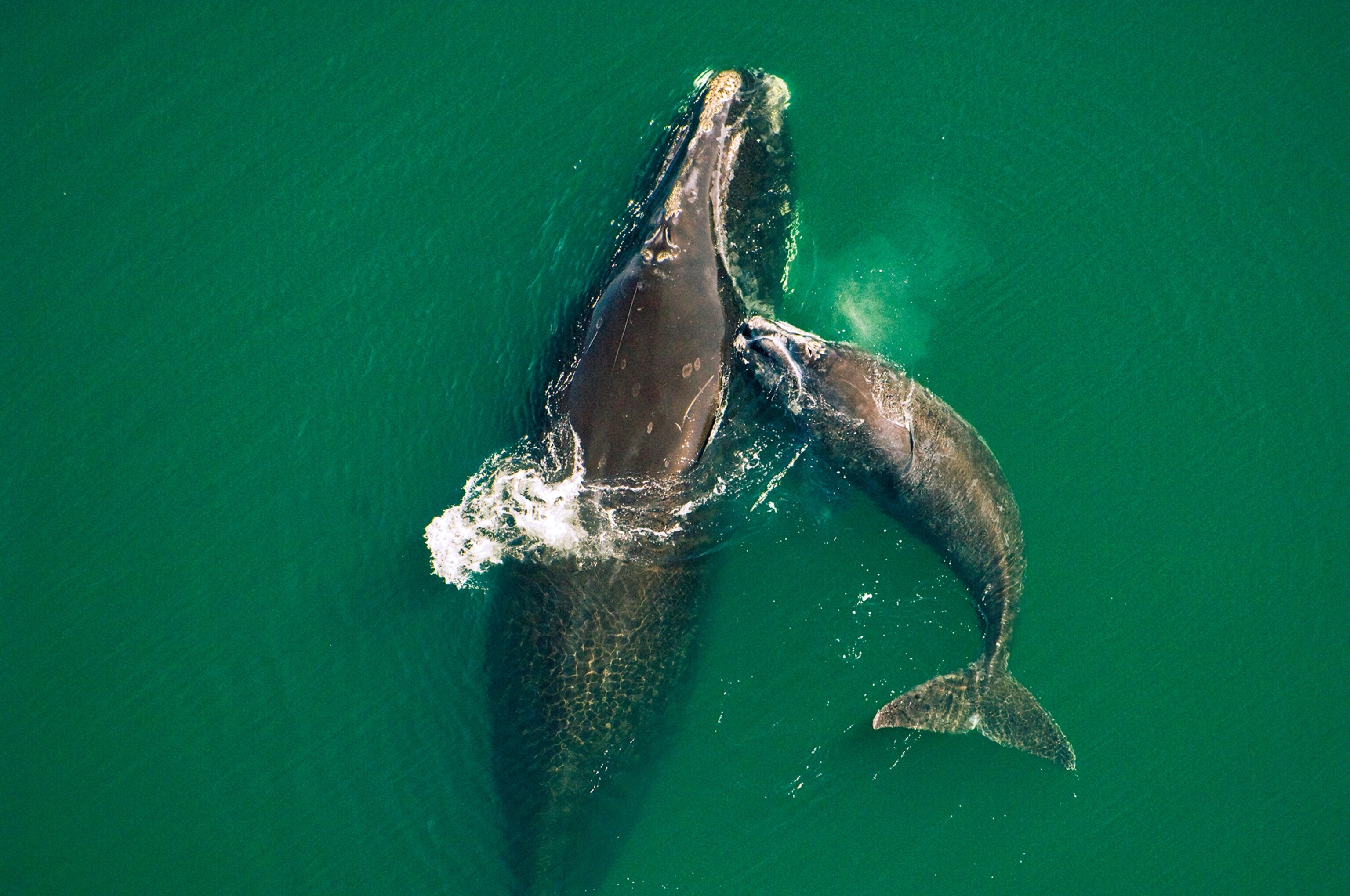
Handheld DNA tester can quickly identify illegal shark fins
The device, which has been used for detecting Ebola and genetically profiling tumors, is now being put toward fighting wildlife crime.
It was April 2017 in a large fish market northwest of Mumbai. Shark fins destined for China were piled onto tables, with a good dose of blood to go around. Tens of millions of sharks are killed for the fin trade every year, primarily destined to become shark fin soup, and a quarter of the world’s sharks, rays, and chimaeras (a cartilaginous fish also known as ghost sharks) are considered to be threatened. The international trade in many species is prohibited, but it can be nearly impossible for law enforcement, and even for experts like Shaili Johri, a post-doctoral biology researcher at San Diego State University, to tell whether the fins are from protected species once they’re separated from the bodies.
The samples could be sent to a lab for DNA testing, but the it was an eight-hour drive away, and the test would take a full day to process. But Johri had a futuristic trick up her sleeve—a handheld, Star Trek-like device that can say what species a part belongs to in a fraction of the time, using only a small tissue sample. The gene sequencing conducted by the MinION device, which she was testing out at the fish market, is a promising new tool to help crack down on the illegal shark fin trade.
Johri and Elizabeth Dinsdale, a biology professor at San Diego State, are coauthors of a study published recently in the journal Scientific Reports detailing the first use of the new device for wildlife conservation purposes. Announced in 2012 and launched in 2015, the roughly smartphone-sized device is made by U.K.-based Oxford Nanopore Technologies. It has been used for the detection of Ebola virus in West Africa, gene profiling of tumors, and quickly identifying the source of a salmonella outbreak, among others. It’s clear it also has the potential to help crack down on wildlife crime.
Hollie Booth, a sharks and rays advisor for the New York-based nonprofit Wildlife Conservation Society, was not involved in Johri’s research. She’s impressed: “The tech is really cool, and it has lots of potential,” she says. “It basically has the ability to give extremely reliable species-specific information, which can be used for both the general trade monitoring and also in enforcing cases,” she says.
The MinION
It requires a small tissue sample, from which to extract DNA, and a laptop. No internet is necessary, as long as the genetic databases are already downloaded. Johri says it takes as long as 48 hours to get a good chunk of genome sequence, but the device can reveal a species in an average of three or four hours—and sometimes in just a few minutes.
One downside—it isn’t cheap. The MinION itself costs $1,000, including two initial cartridges. Every subsequent sequencing cartridge, which can do 12 samples at once, costs an extra $500. That’s roughly $42 per sample. The conventional DNA analysis method costs as little as $5 a sample.
The MinION gives more information than traditional barcoding, which identifies a species using a short, standardized fragment of DNA, and it can sequence a large section of a genome more cheaply than companies like Illumina, which currently full sequencing in a lab. Furthermore, Oxford Nanopore recently introduced a cheaper cartridge with lower sequencing capacity for $105.
Tracking contraband to its source
Booth says the MinION has enormous potential, whether controlling wildlife contraband at borders or illegal fishing in markets.
And the possibilities of this device aren’t just limited to sharks. These tools could be used to identify and track elephant ivory, pangolin scales, and other wildlife contraband, Johri says. DNA taken from elephant ivory intercepted by law enforcement has helped identify poaching hotspots, which can then be targeted for anti-poaching efforts, but the DNA analysis usually must be done in the U.S.
“The MinION could be a game changer in that it can be used by wildlife officials locally,” Johri writes in an email. “This will expedite resolution and identification of smuggled ivory… and allow expedient law enforcement.”
MinION developers also won an award in 2016 from the Wildlife Crime Tech Challenge, a global innovation competition that gives prizes to science and technology addressing wildlife trafficking issues sponsored in part by National Geographic. In their award pitch, they said “a rapid DNA test which could be performed at a market, customs post, or in a protected area would allow for the arrest of criminals and the confiscation of evidence for use in criminal proceedings. Such a test would also provide a powerful deterrent and potentially reduce consumer demand for illegal wildlife products.”
Johri says the evidence provided by MinION has not yet been used in legal cases because it's so new, but it’s just a matter of time because its sequencing provides the highest level of accuracy.
“It needs to be seen as a tool within part of broader efforts to strengthen policy and capacity and monitoring in general for lots of these species,” Booth says.
New subspecies
Since the MinION can sequence entire genomes, researchers can use it to identify new species in the field. It could help establish population estimates, which can be extrapolated by comparing sequences from different animals of the same species for genetic diversity. It could even identify genetically distinct, regional subspecies which might warrant protection under global wildlife trade conventions.
Dinsdale says the device can fill a big gap in our knowledge—only five shark genomes in the world have been sequenced to date. “We have only just started to explore the genomic wonders of sharks,” she says.
What we learn from sequencing sharks can have health implications as well. The genetic data gained from the device can help us understand why sharks don’t get cancer, why they live so long, and why they heal so well, Johri says.

